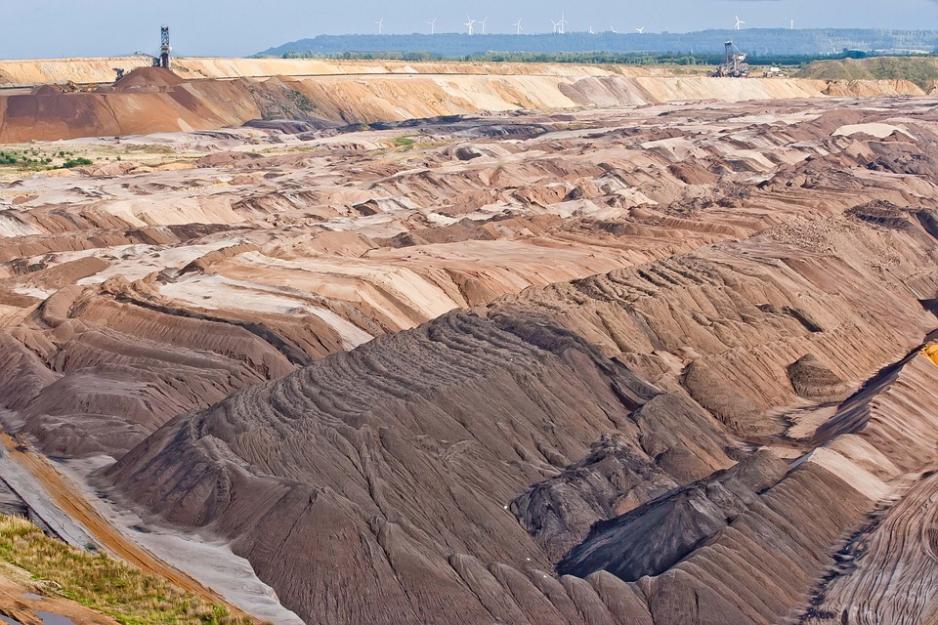Why Should We Build A Parliament Garage on Svalbard?

It is easy to understand reactions when the construction of a new garage for the parliament amounts to NOK 2 billion more than planned. Especially when the garage is located literally underneath the feet of upset politicians and journalists. If the same actors had placed their feet at Svea on Svalbard, perhaps the amounts scheduled to be spent in this mining society would have stirred some reactions too.
So far, estimates for how much it will cost to shut down the Svea mines range from NOK 700 million to NOK 2.5 billion. The latter-mentioned figure was presented in the revised national budget recently. In the revised budget, there are also a series of safeguards stating that the amount may increase when the number-crunchers go from guessing to producing more qualified budgets.
Not too overwhelming
The size of the amount is what journalists would normally call ‘overwhelming’, however, as it has to do with Svalbard and mining, the costs are surrounded by what the legendary Swedish circus director Francois Bronett referred to as «the largest possible silence».
In the inner areas of the Van-Mijen fjord at Spitsbergen, the tracks from giant bear paws and playful Arctic foxes are not the only ones to meet. As does politics’ inherent aversion against discussing complicated issues.
One the one hand; Norwegian Svalbard policy.
On the other hand; Norwegian mining policy.
Two issues sharing one thing in common – they rarely make the transition from festive headlines to a genuine political discussion.
Norwegian Svalbard policy is firm and sovereignty is not under threat. That is as far as Norwegian politicians are willing to go in that debate. It is a strategic choice that can only be understood on the basis of a desire to not invite other [Svalbard] Treaty countries into a debate that could in any way challenge Norwegian sovereignty.
There is widespread consensus that Norway shall conduct active management of mineral resources found in its mountains, as far as mining goes. However, when the debate moves on to the issue of how to politically make it possible to extract these resources, most actors shy away.
But brown coal is okay
The fact that Svalbard mining is about coal, does not make the discussion any easier.
I have just been to Poland. Along the canal shores, one can find large storages with brown coal. Poland, just like Germany, will get most of its energy from brown coal, the dirtiest kind of coal, for the foreseeable future. In Germany, entire towns are demolished to extract new coal deposit reserves. The Norwegian State’s ‘Government Pension Fund Global’ – popularly known as ‘the oil fund’ - has principally withdrawn from coal investments, yet it holds NOK 1.4 billon worth of shares in the German energy giant RWE.
The Norwegian government has decided to shut down the Svea mine, with massive parliamentary support, although the coal deposits here are far less polluting than brown coal. The government’s arguments are purely economic. Producing coal in Svalbard was simply not economically viable.
Then there is the question; are the calculations still valid?
Coal prices have increased significantly recently, even on long-term contracts. Store Norske, the Svalbard coalmining company, has presented a proposal to combine further coal extraction, without major investments, with a controlled liquidation of mining in Svea. The costs related to liquidating Svea has increased from NOK 700 million to NOK 2.5 billion – and are still increasing.
Absolute silence
This happens at the same time as Norwegian authorities worry about a decreasing Norwegian population on Svalbard, a fact that is largely due to downscaling of the mining industry.
This is the landscape in which members of parliament as well as others move around in “the largest possible silence”, and that makes it hard to find connections between the money spent and common sense.
What we are witnessing is nothing short of contempt for a knowledge-based discussion about Norwegian industry policies and Svalbard’s future.
It should not be like that.
Trade Minister Torbjørn Røe Isaksen has signaled that he wants an open debate about these issues. Now he has the opportunity to demonstrate that in practice.
Because nothing would be more out of place than a new parliament garage in Svea.
This editorial originally appeared in Norwegian and has been translated by HNN's Elisabeth Bergquist.
Les kommentaren på norsk
